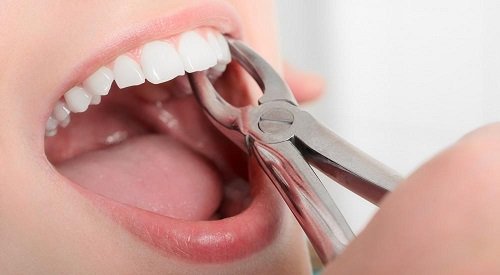
When Extraction Is Needed: 4 Common Reasons to Remove a Tooth
This blog explains four common reasons a tooth may need extraction. Learn when removal is necessary to protect your oral health and smile.
No one likes the idea of losing a tooth. It’s something most people hope to avoid. However, in some cases, retaining a tooth may cause more harm than benefit. Whether it’s pain, pressure, or problems beneath the surface, there are moments when removal is the right move.
Tooth extraction might sound intense, but it can lead to relief, healing, and better long-term health. Knowing when it’s needed helps take away the fear. Keep reading to learn the common reasons dentists recommend this step-and how it could be the best choice for your smile.
1. Damage Beyond Repair
Accidents happen. Whether it’s from a sports injury, fall, or chewing something too hard, a tooth can break or crack in a way that can’t be fixed. When the damage reaches deep into the root or splits the tooth completely, saving it might not be possible.
In these cases, removing the tooth protects the rest of your mouth. It keeps the area clean and gives space for a replacement if needed. While losing a tooth isn’t ideal, it’s sometimes the safest path forward.
2. Infection That Won’t Go Away
Tooth infections can be serious. They often begin with deep decay that reaches the nerve. In some cases, root canal treatment can solve the problem. While extraction can sometimes be a last resort, it is essential to consider various treatment options before proceeding.
This kind of removal helps keep the infection from reaching nearby teeth, the jawbone, or even the bloodstream. It is a significant step, but one that can protect your health well beyond your smile.
3. Crowding in the Mouth
Sometimes there just isn’t enough space. Teeth may push against each other, overlap, or grow in at odd angles. This often happens before braces, especially in teens. A dentist or orthodontist may suggest the removal of one or more teeth to assist the rest in moving into the correct place.
It’s also common with wisdom teeth. Wisdom teeth can often cause crowding and pain due to limited space as the jaw continues to develop. They’re often removed before they cause long-term issues. In both cases, dental extractions help make room and improve alignment.
4. Advanced Gum Disease
Gum disease doesn’t just hurt the gums. In later stages, it weakens the bones and tissues that support teeth in place. If a tooth becomes too loose or infected because of it, removal may be needed.
Removing the tooth can halt the disease’s spread and promote area healing. Once things are stable, you can explore options to replace the missing tooth and restore balance to your bite.
A Clear Path to a Healthier Smile
Tooth removal isn’t about giving up-it’s about moving forward. When a tooth becomes a problem, taking it out can bring comfort, protection, and peace of mind. With modern care options, healing is now faster and smoother than ever. Sometimes, letting go of one tooth is how you make space for a healthier, stronger smile ahead.
For more on this content, visit the rest of our blog!


